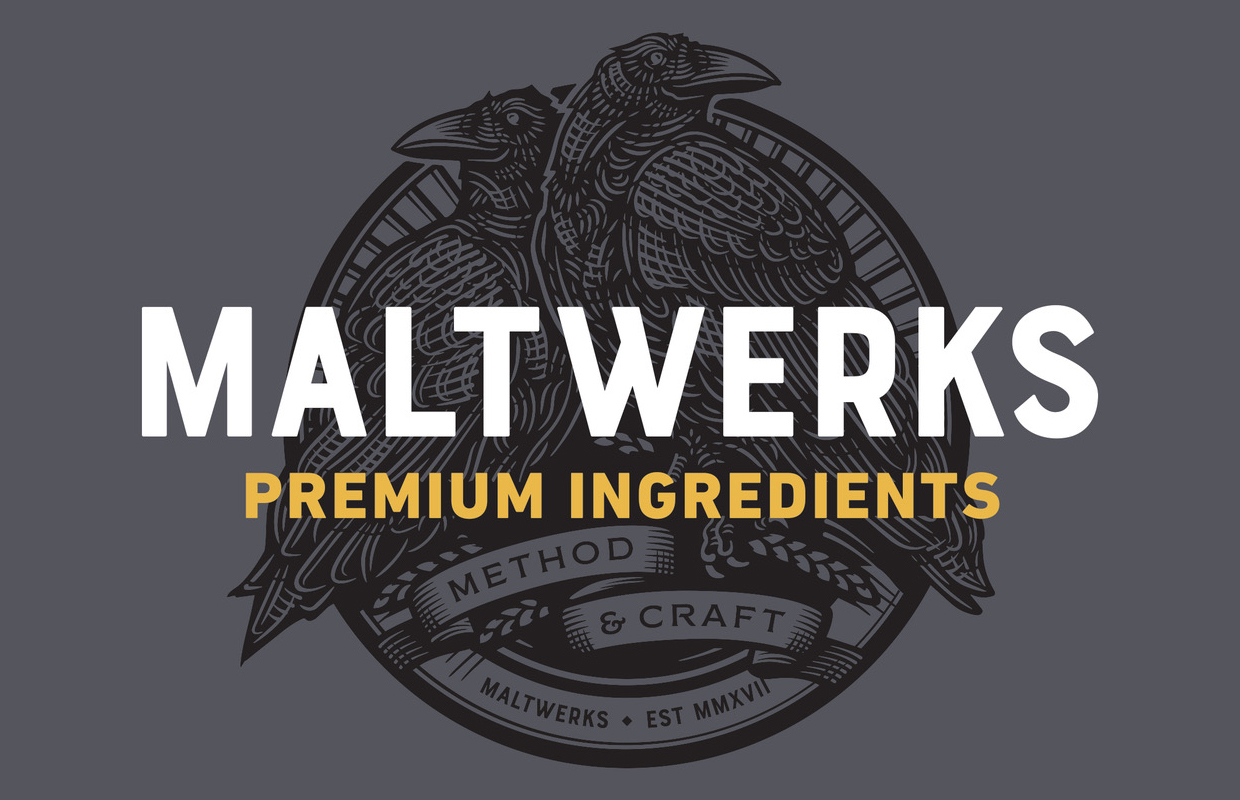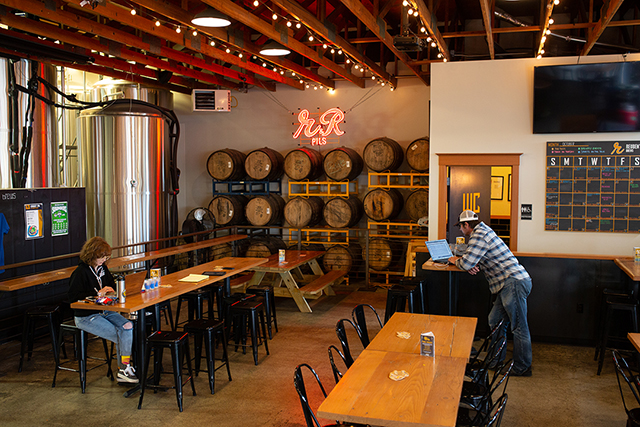
Civil Sass is a veteran-owned hops yard providing premium hops to premium brewers. The dude’s vineyard, beer on a bine or freedom on a string, whatever you call it … this Minnesota hop yard prides itself on being a place to radically connect the beer community with those who “grow” it. “We believe these hops deserve your beer because you are civil enough for some sass!” Maltwerks‘ Dan Murphy shares this Q&A with Brewer Magazine.
MALTWERKS: Tell you about yourselves and your backgrounds?
SASS: We are Jake and Abbey Sass, farming on a third-generation family farm. The fourth generation just celebrated his first birthday. This is our fifth hop harvest. Farming is part of our heritage and part of our community. It is something that has always made us feel like we were right at home.
MALTWERKS: Varieties grown and why?
SASS: Our focus is on true-to-type, traditional varieties. A few examples being Cascade, Centennial and Chinook. We hope by growing them exceptionally, it brings out some of their lost characteristics.
MALTWERKS: Why do you feel regional grown hops are important to craft brewing?
SASS: The craft beer industry is an ecosystem created through the connection of a local population to beer and the people who brew it. Hops are an essential ingredient to making beer. Having regional hops provides an opportunity for collaboration between multiple local businesses, making a truly strong local brew industry. Regional grown hops are not only important, they are a pivotal aspect to this brewing ecosystem.
MALTWERKS: Why should a brewer select regionally grown hops over more traditional growing areas?
SASS: It comes back to having a conversation. Hops grown on a commodity scale aren’t necessarily tailored to an individual brewer and their goals for their brews. Often that conversation can happen directly with a local hops grower to ensure their brewing goals are met.
MALTWERKS: What has been the greatest challenge you faced on the agriculture side?
SASS: Hops require a lot of infrastructure and overhead. A massive amount of generational knowledge is held in the farms out west. Every farm needs an older farmer giving advice! So, we have been very deliberate in mentoring with farmers that have generational knowledge. That knowledge is worth its weight in gold.
MALTWERKS: What has been the greatest challenge NOT on the agriculture side?
SASS: Market access. We have no large hop broker representing our hops. It seems like the lack of affiliation brings a sense of a qualitative difference in our product, which has provided some tough barriers to overcome.
MALTWERKS: What are you most excited about in hops in the next five years?
SASS: It seems like the brewing industry is starting to turn a corner from viewing hops as a simple input commodity and now starting to utilize hops’ many characteristics. For example, introducing them in stages throughout fermentation. That is the beginning of some neat conversations on maximizing certain hop components.
MALTWERKS: What is something you wish brewers understood about hops?
SASS: The value to reducing the distribution chain is something difficult to discuss. Brewers are hesitant to walk away from large brokers yet are incurring more risk than they are aware. The more places along the distribution chain, the more chances of quality disappearing. How was it processed? How was it stored? How does the cost of shipping affect your price per pound? Reduce all of that down to a regional vendor, a single point of contact for the distribution chain oversight.
MALTWERKS: What’s your favorite memory so far on your farm?
SASS: This year our processing capabilities were made complete by adding a pelletizing system. Watching those beautiful pellets tumble out of the pelletize the first time fantastic! (Now consider that we harvested by hand our first year!)
MALTWERKS: What’s something you wish you knew when you started that you know now?
SASS: Other than the fact that gophers are the worst enemy of irrigation hosing, we wish we had inherently known the art of properly drying hops. It sounds simple and scientific, yet there are a lot of intangible aspects that are only learned on the spot.
MALTWERKS: How can brewers help keep regional hop growers growing?
SASS: You do not need to switch your entire hop portfolio. There are amazing proprietary hops on the market. Yet your portfolio typically has plenty of traditional hops. Those are areas regional grown hops are hugely beneficial to your brew.
Maltwerks is proud to offer Civil Sass Hops shipped directly from the grower to you, the brewer. Learn more at maltwerks.com or by calling 218-844-MALT (6258)






Be the first to comment